Submitted by WA Contents
Nordic Countries Pavilion examines modern architecture through the lens of transbodies
Italy Architecture News - May 21, 2025 - 04:30 5359 views
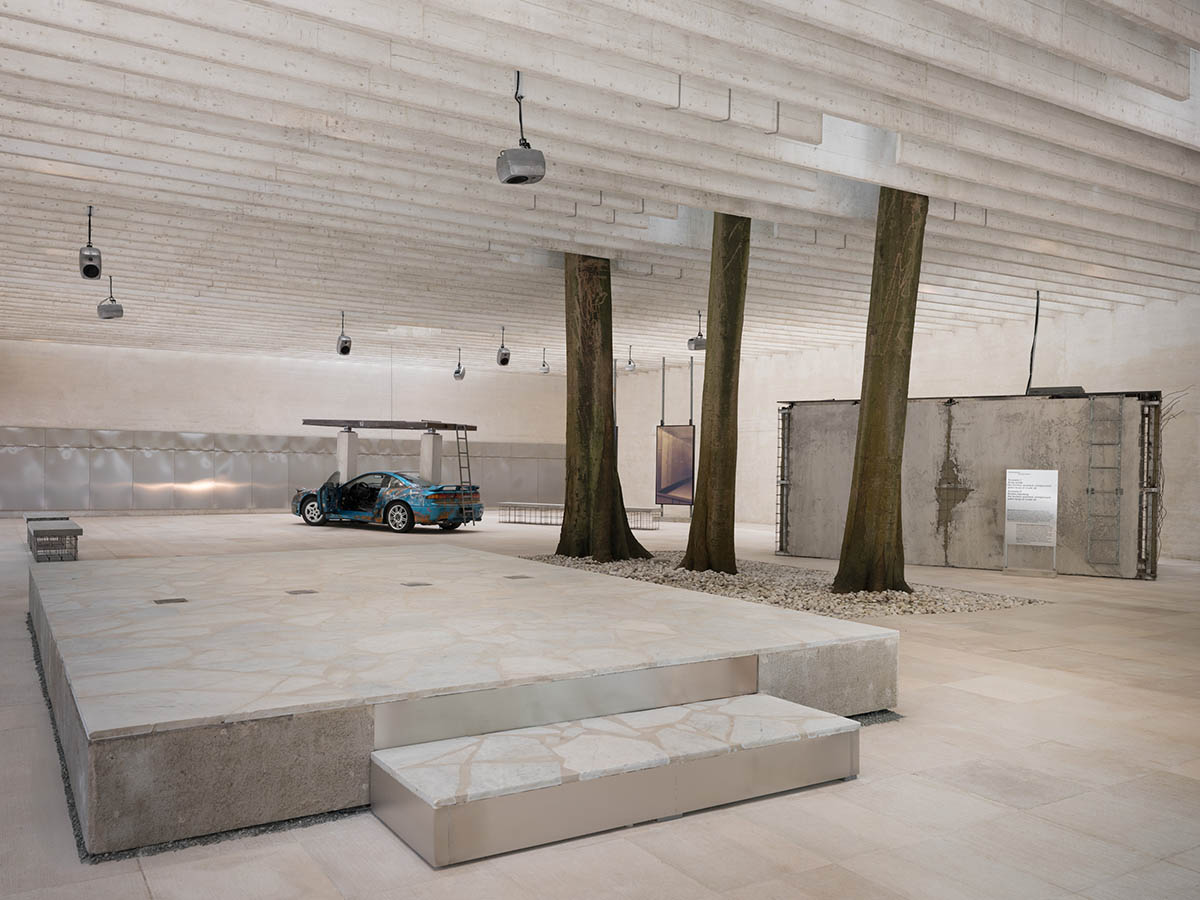
At the 19th International Architecture Exhibition, Finnish artist Teo Ala-Ruona and his interdisciplinary team will present a new performance piece and installation at the Nordic Countries Pavilion, representing Sweden, Finland, and Norway, during the 2025 Venice Architecture Biennale.

Titled Industry Muscle: Five Scores for Architecture, the exhibition examines the question of "can the relationship between architecture and the body be shown through performance art?."
Industry Muscle uses the trans body as a lens through which to study architecture, offering five speculative scores that are important reminders for further practice.
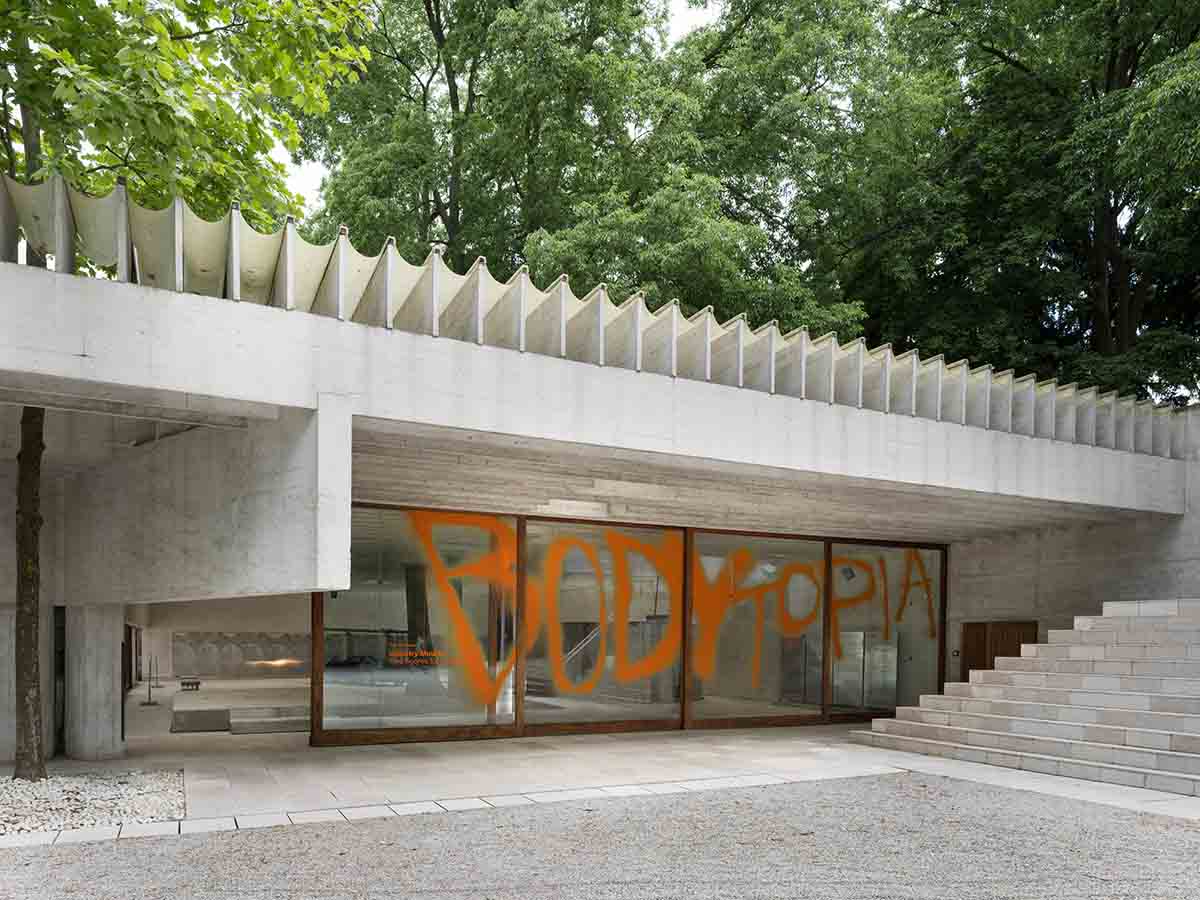
The artist Ala-Ruona integrates architecture, performance, and installation art with a group of partners. The exhibition in Sverre Fehn's renowned pavilion reveals how the sociopolitical norms of fossil-based culture are performed in the built environment.
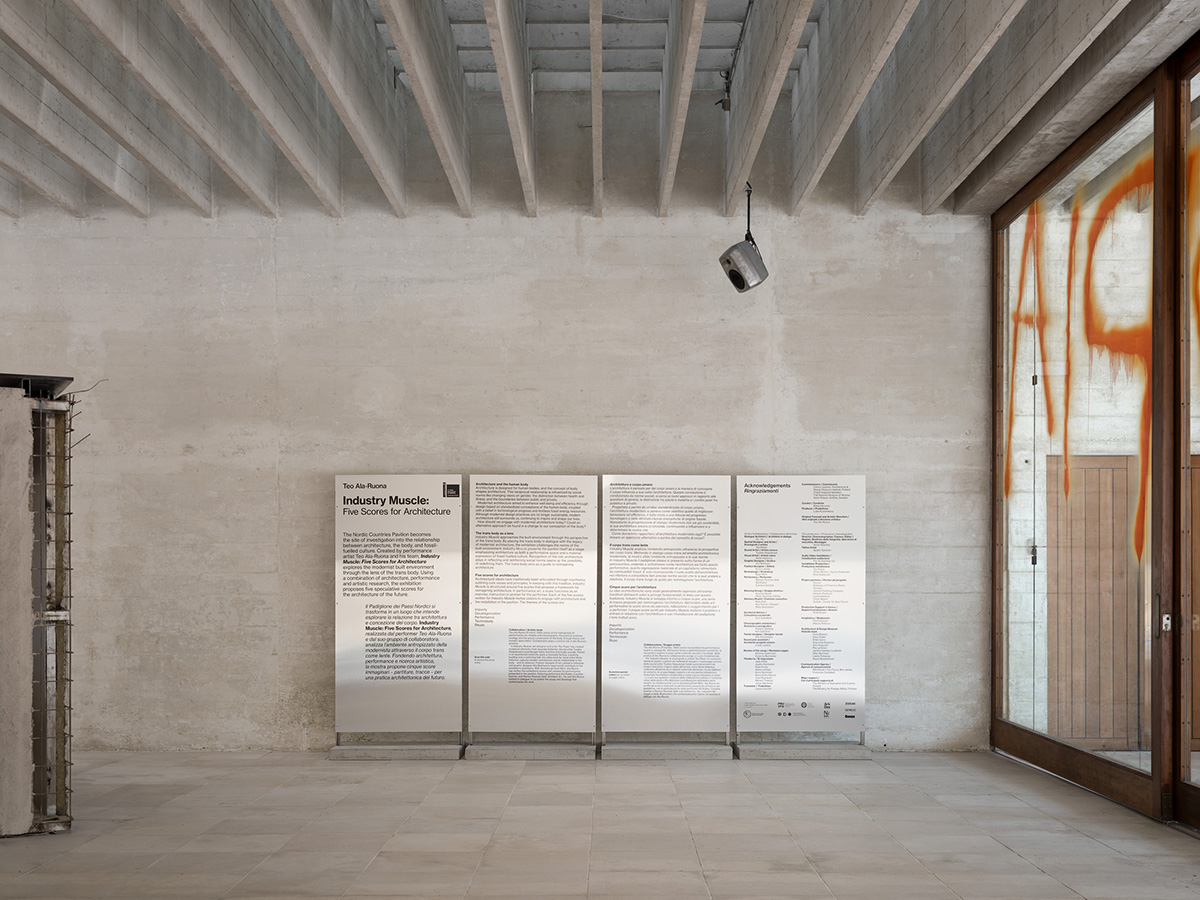
Industry Muscle: Five Scores for Architecture, curated by Kaisa Karvinen for the Architecture & Design Museum Helsinki, extends Teo Ala-Ruona's work on ecology and trans embodiment into the field of architecture. In its analysis of contemporary architecture and the built environment, Industry Muscle takes into account the trans body, opening a dialogue with the renowned architecture of the Nordic Countries Pavilion, which was designed by Sverre Fehn and finished in 1962.
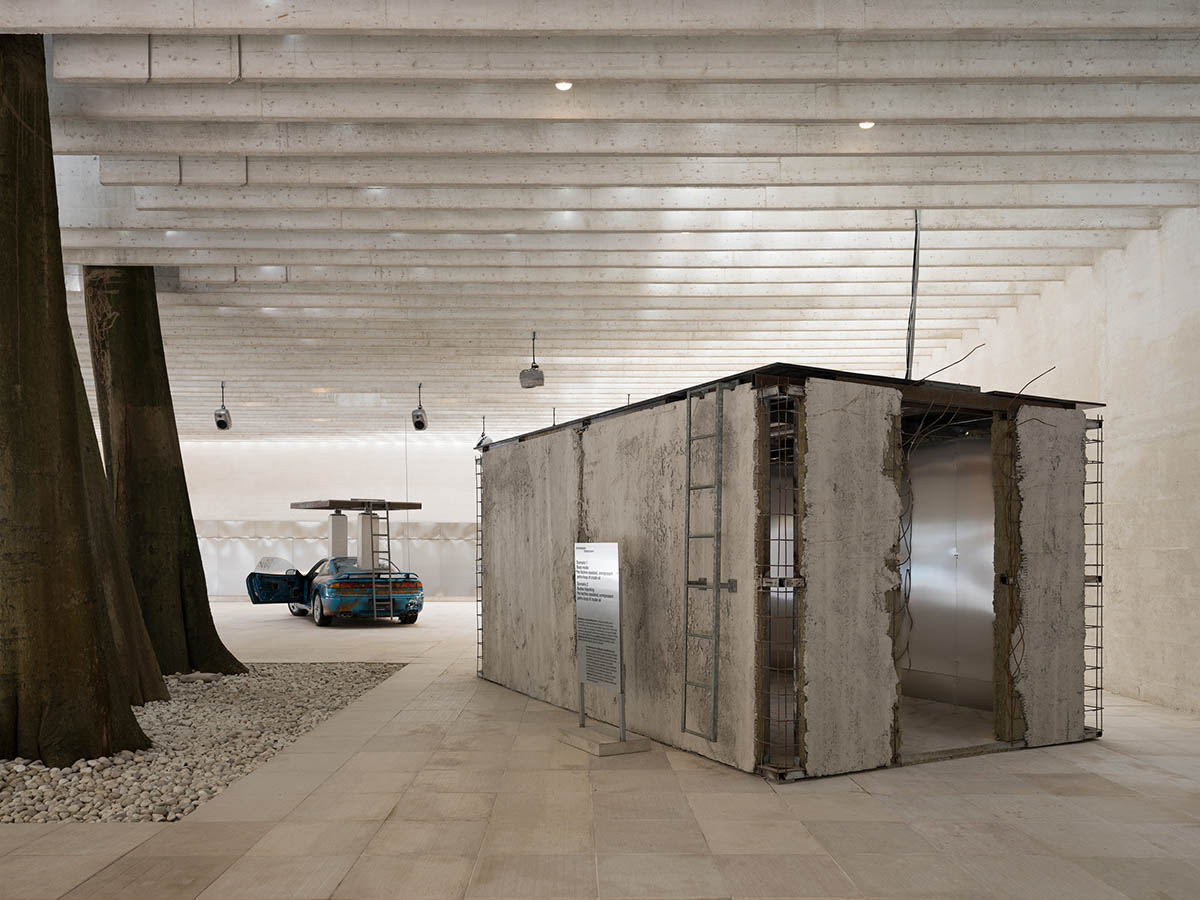
The show will shed light on the connections between architecture, the body, and ecological collapse by contrasting Fehn's classic modernism with a different approach to architectural practice that starts with the trans body.

The Nordic Pavilion and architecture in general are presented to the audience in Industry Muscle as a platform for social standards ingrained in fossil-based culture.
The exhibition's staging puts the viewer at the center of an architectural experience in which every participant is on display while performing out routine performances. The transbody crowbars its way into this construction and exposes the plan inside in Ala-Ruona's interventions.
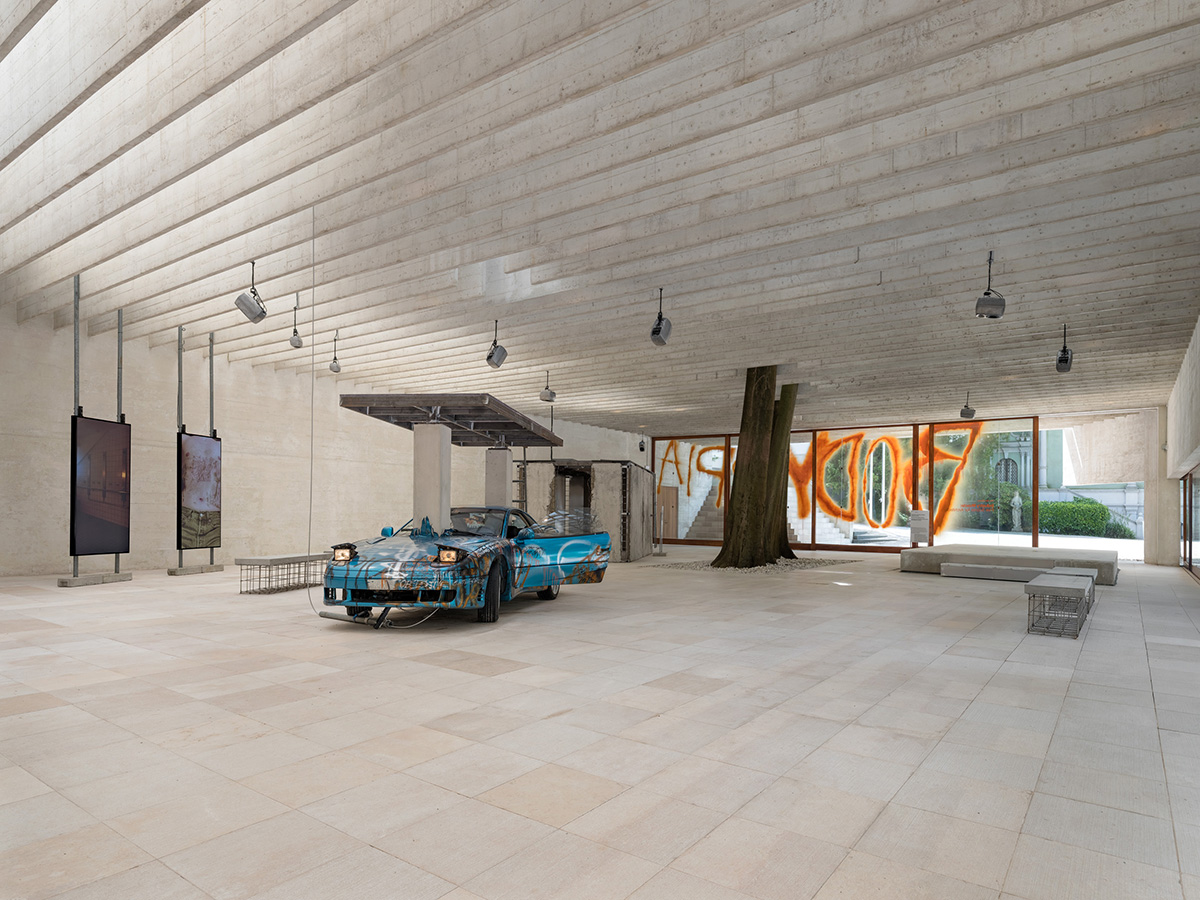
Five speculative scores that act as crucial catalysts for future architectural activity are used to reveal Industry Muscle. In performance art, scores serve as exercises, tasks, and notations that give a performer directions.

The following themes are used in the show to apply this idea to the realm of architecture: Impurity: Casting doubt on the modernist ideal of purity that permeates both lifestyle and architecture. Decategorisation: Putting into question methods used in the built environment that rely on classification and division. Performance: Examining how everyday gender and identity performances are influenced by architecture and spatial design. Techno-body: Supporting bodily autonomy while acknowledging the dynamic interplay between the body, the building, and technology. Reuse: Considering the trans body as a tool for ecological thought and a type of reuse.
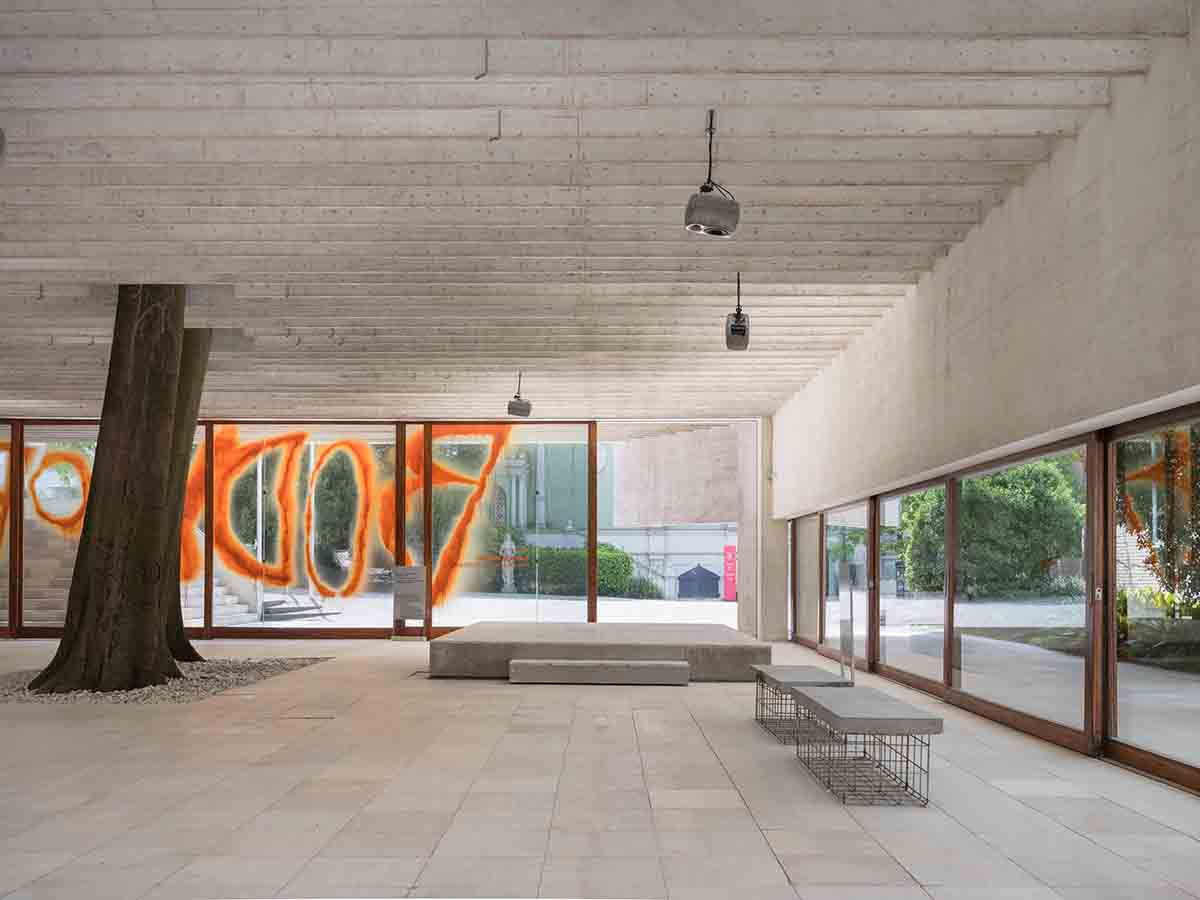
Teo Ala-Ruona focuses on trans embodiment and ecology in her work, which straddles the boundaries of performance art, theater, and choreography. He has put together a multidisciplinary team of collaborators for Industry Muscle, which includes actors Kid Kokko, Caroline Suinner, and Romeo Roxman Gatt; set designer and artist Teo Paaer; sound designer Tuukka Haapakorpi; dramaturge Even Minn; visual artist Venla Helenius; fashion designer Ervin Latimer; graphic designer Kiia Beilinson; and architect A.L. Hu.
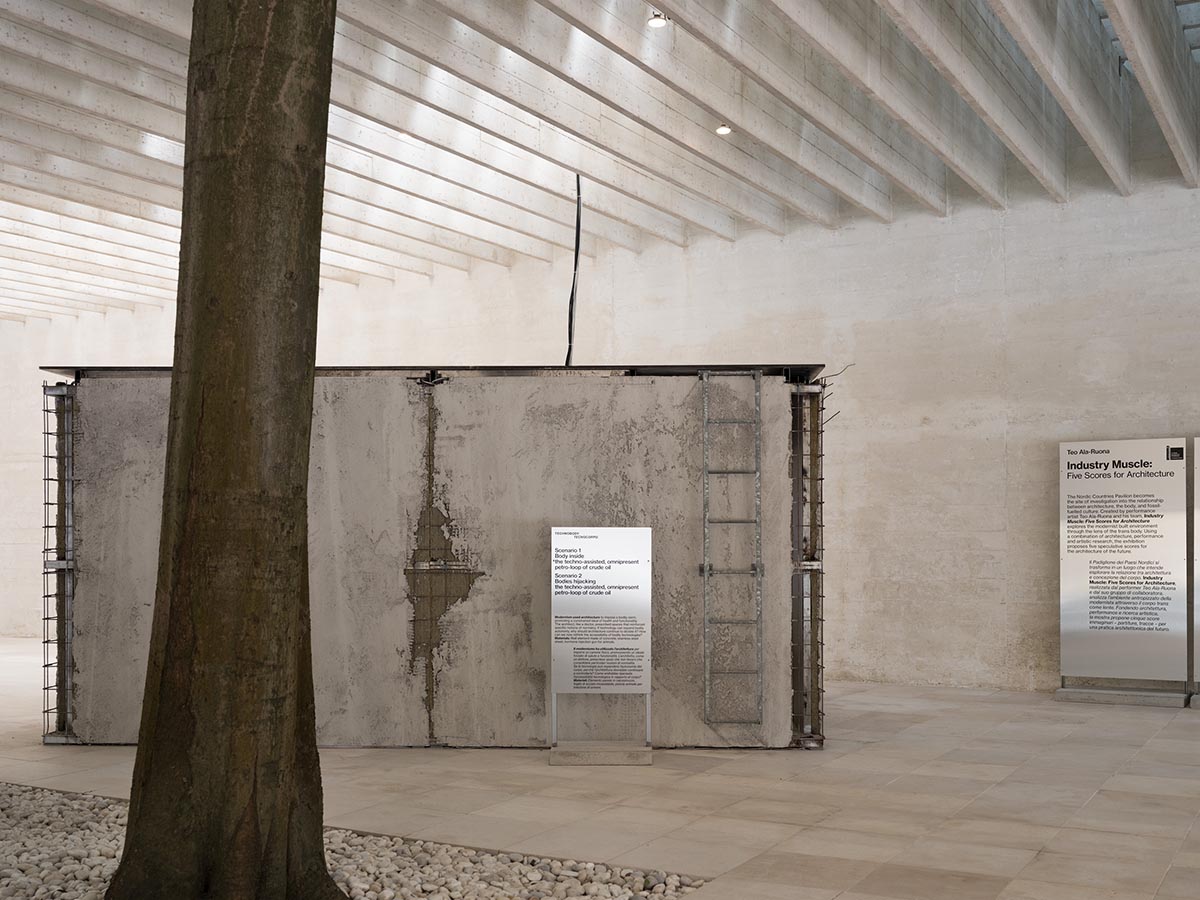
"Sverre Fehn’s Nordic Countries Pavilion is a canonical work of modernist architecture that provides the perfect setting for Teo Ala-Ruona, an artist whose practice deals with the materiality of bodies and ecological questions," said Kaisa Karvinen, Curator of the Nordic Countries Pavilion on behalf of Architecture and Design Museum Helsinki.
"Combining Ala-Ruona’s practice with the architecture of the pavilion provides new insights about our built environment more generally, from the perspective of how the image of the body in fossil fuel-based culture has influenced architecture," Karvinen added.
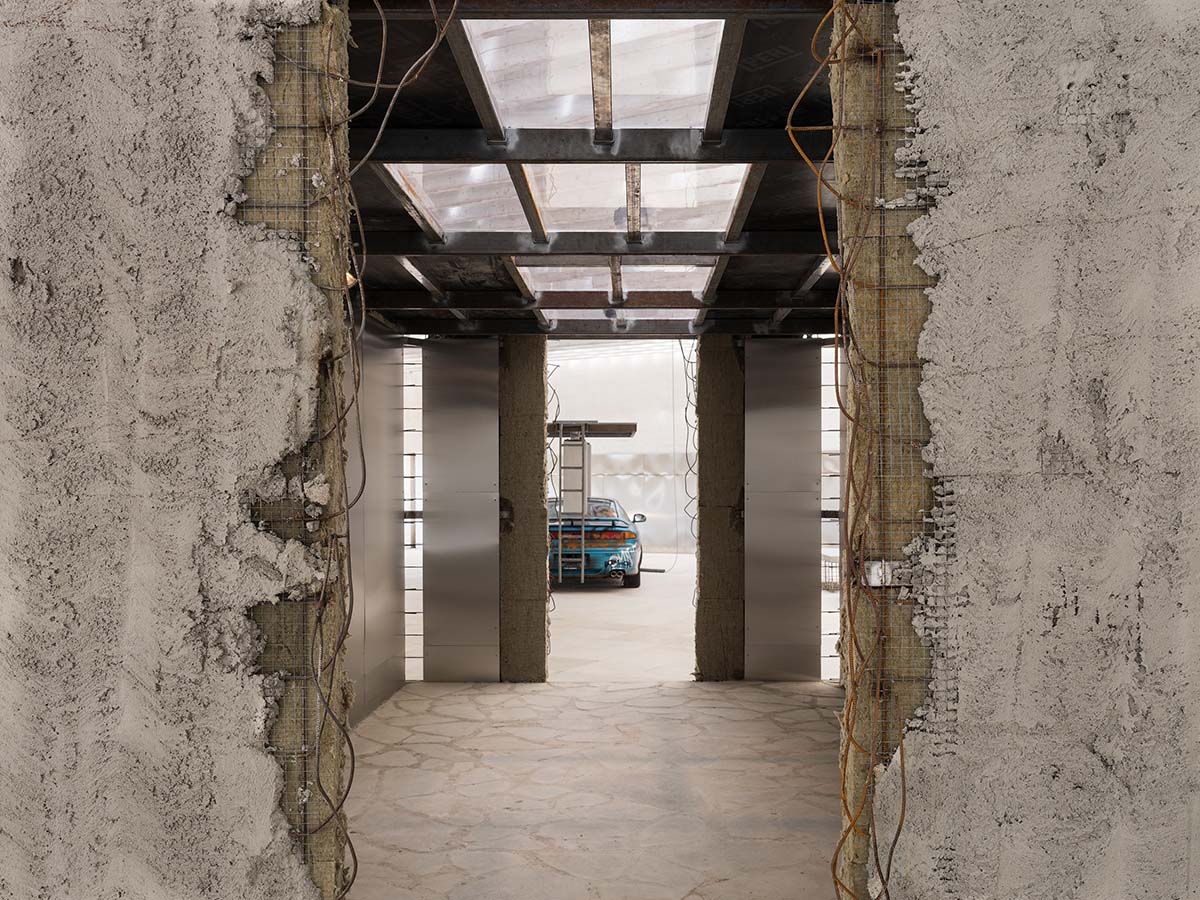
"The transformative potential of the stage and performance is central to Ala-Ruona’s work. In the field of performance art, bodily experience is studied, explored, and valued in a way that is meaningful also for contemporary architectural practice."
"I’m fascinated by the way Ala-Ruona has approached architecture by using the techniques of theatre, expanding his practice into architecture," Karvinen added.
"Industry Muscle proposes a model for architecture grounded in my artistic practice and experience as both a trans person and a performance maker who uses the body as a site of research. This can be as fundamental as creating a sense of comfort in a space that doesn’t highlight the silhouette of the body, but instead offers an adaptive environment. This stands in contrast to the modernist ideal of reduction, which is also reflected in the architecture of the pavilion," said Teo Ala-Ruona.
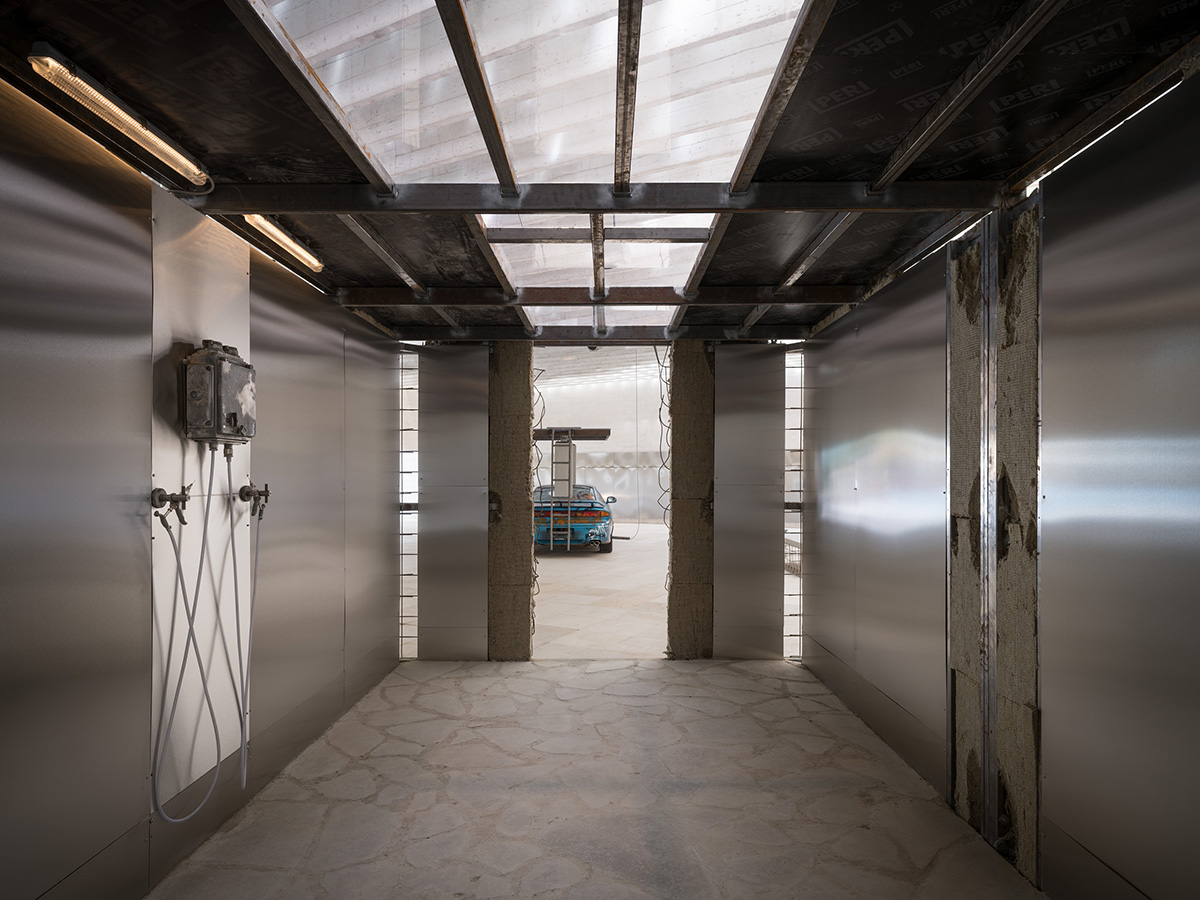
"The built environment is largely shaped by prevailing cultural norms. These norms play a significant role in how bodies are presented in everyday life, as well as in the ecological burden of the construction industry. Together with my team, I want to spark new conversations and explore how architecture can challenge the status quo," Ala-Ruona added.
The Architecture & Design Museum Helsinki (Finland), the National Museum of Norway, and ArkDes (Sweden) have partnered to commission the Nordic Countries Pavilion.
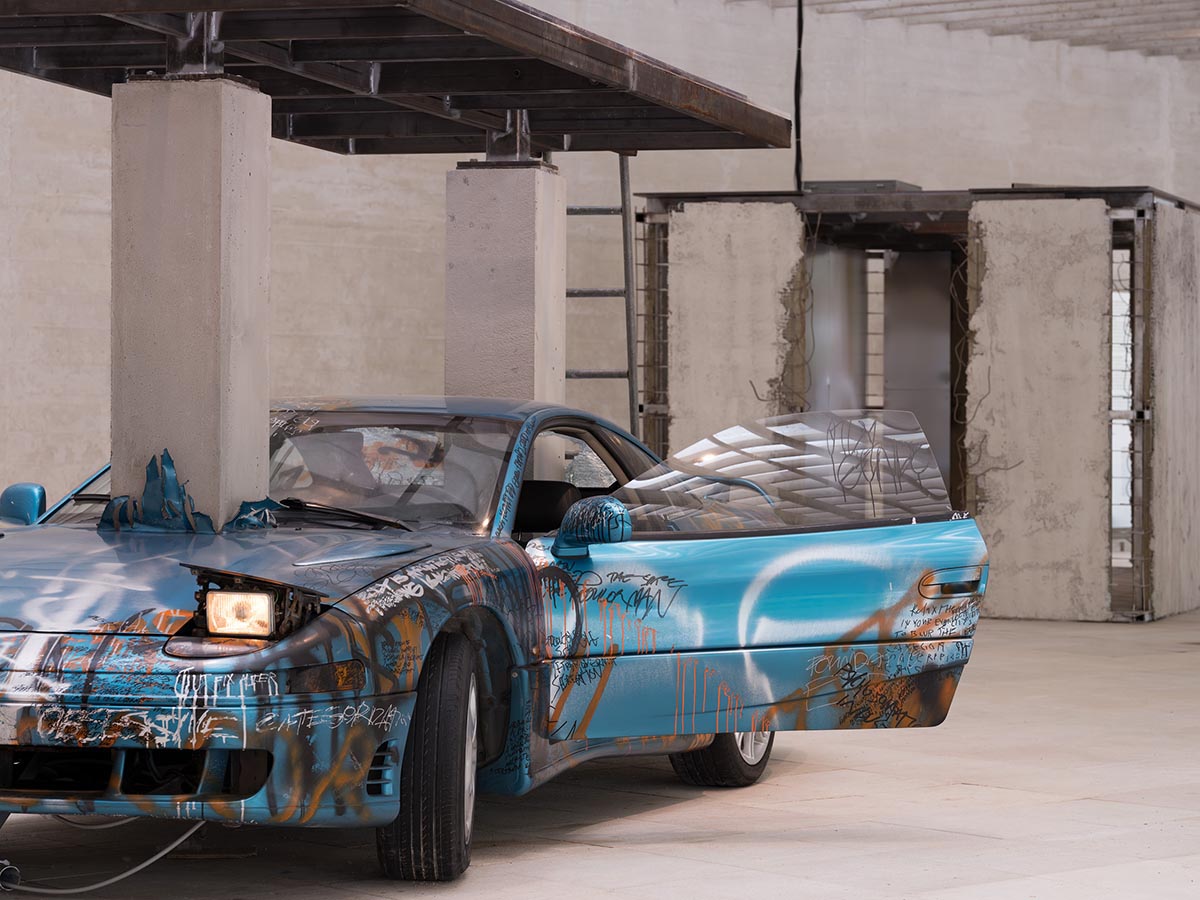
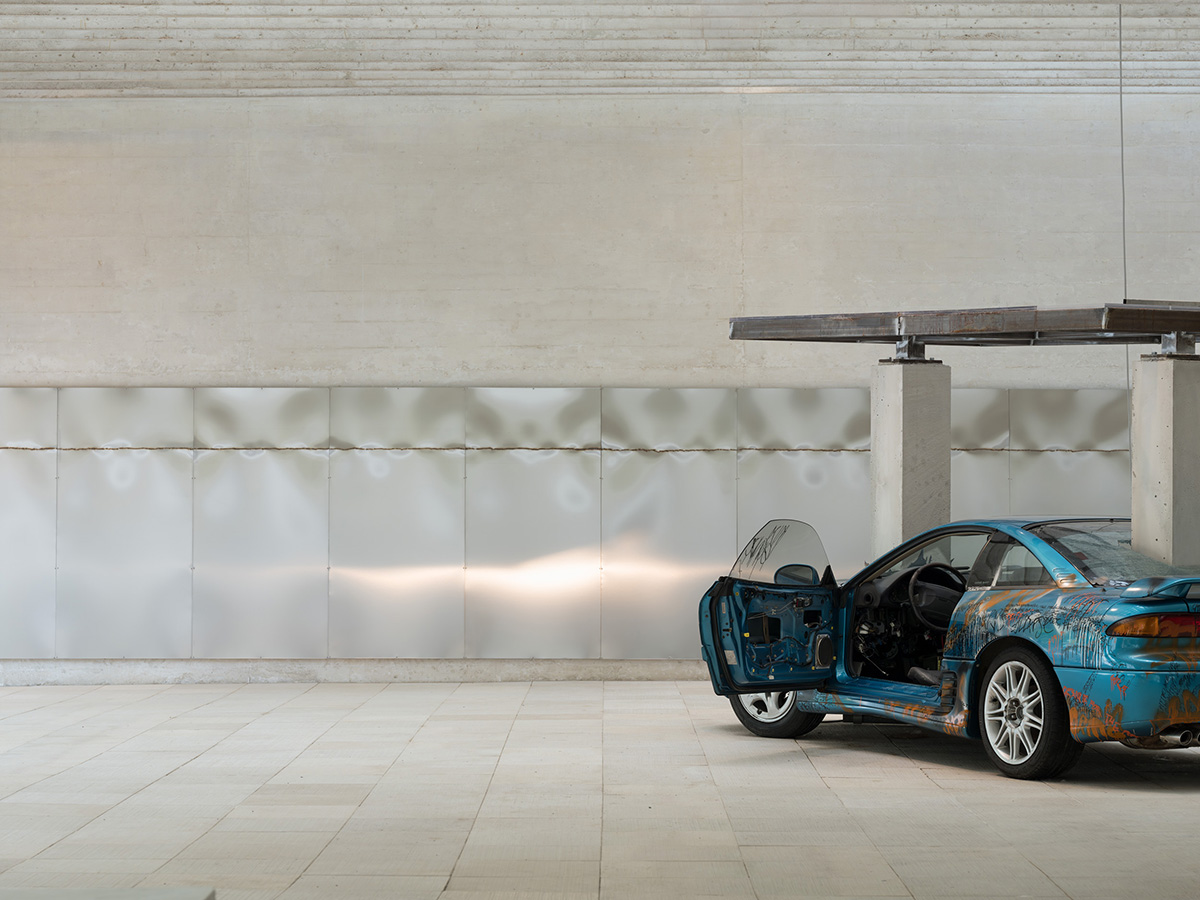
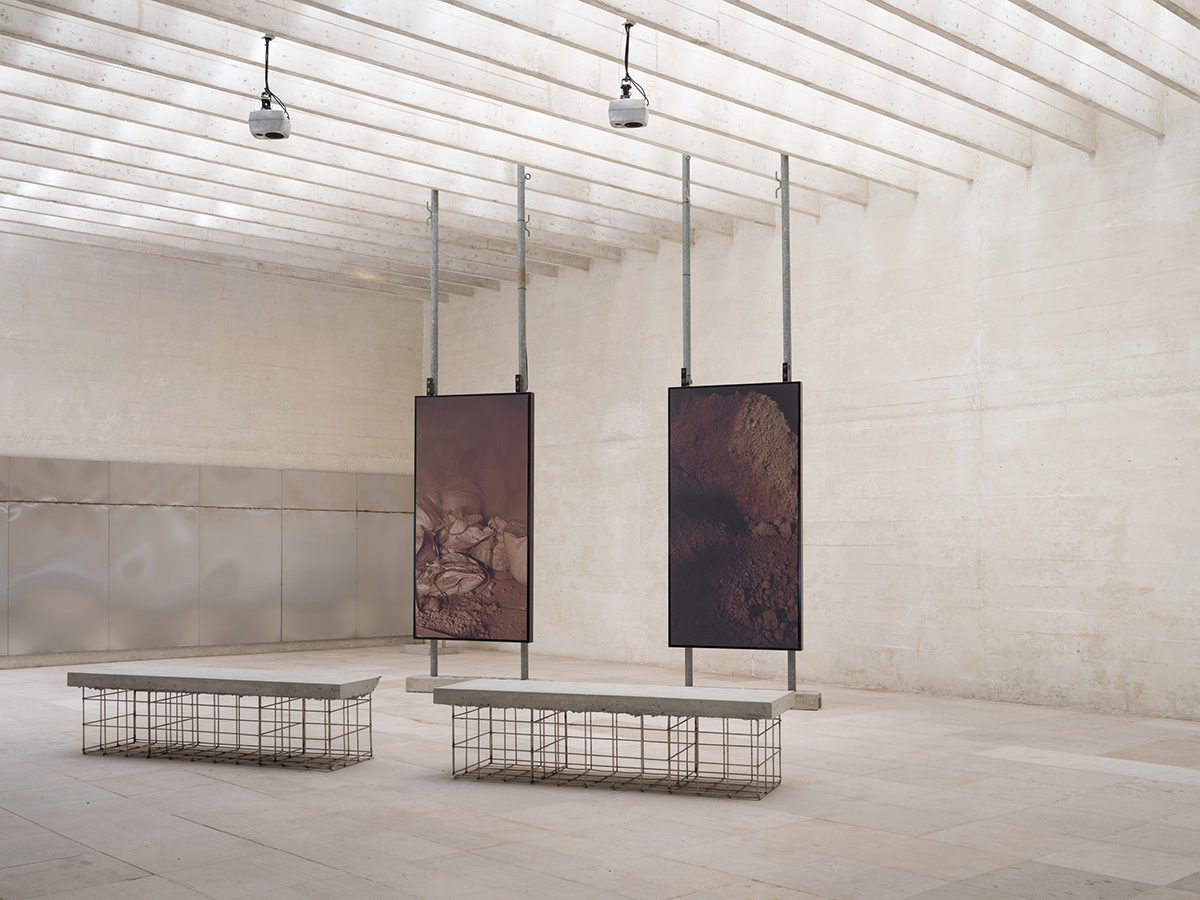
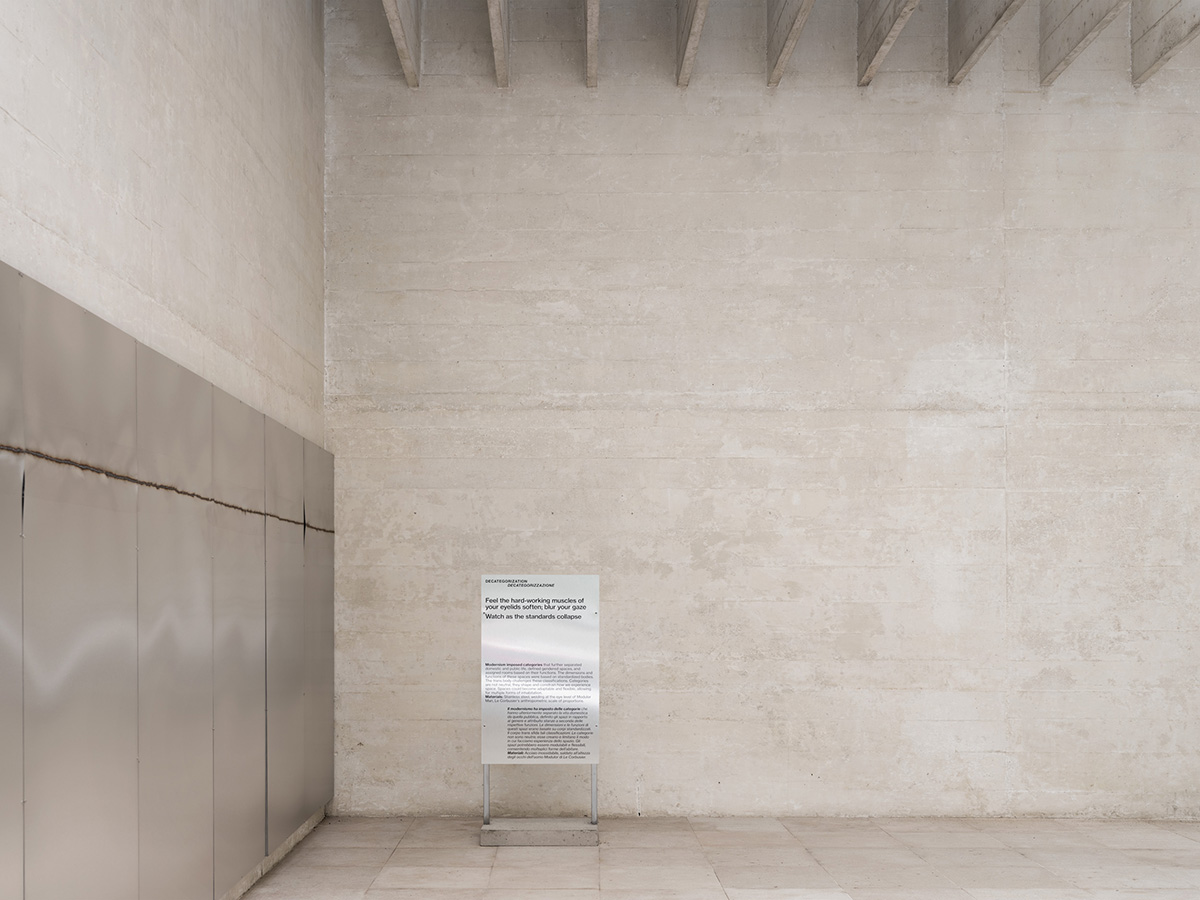
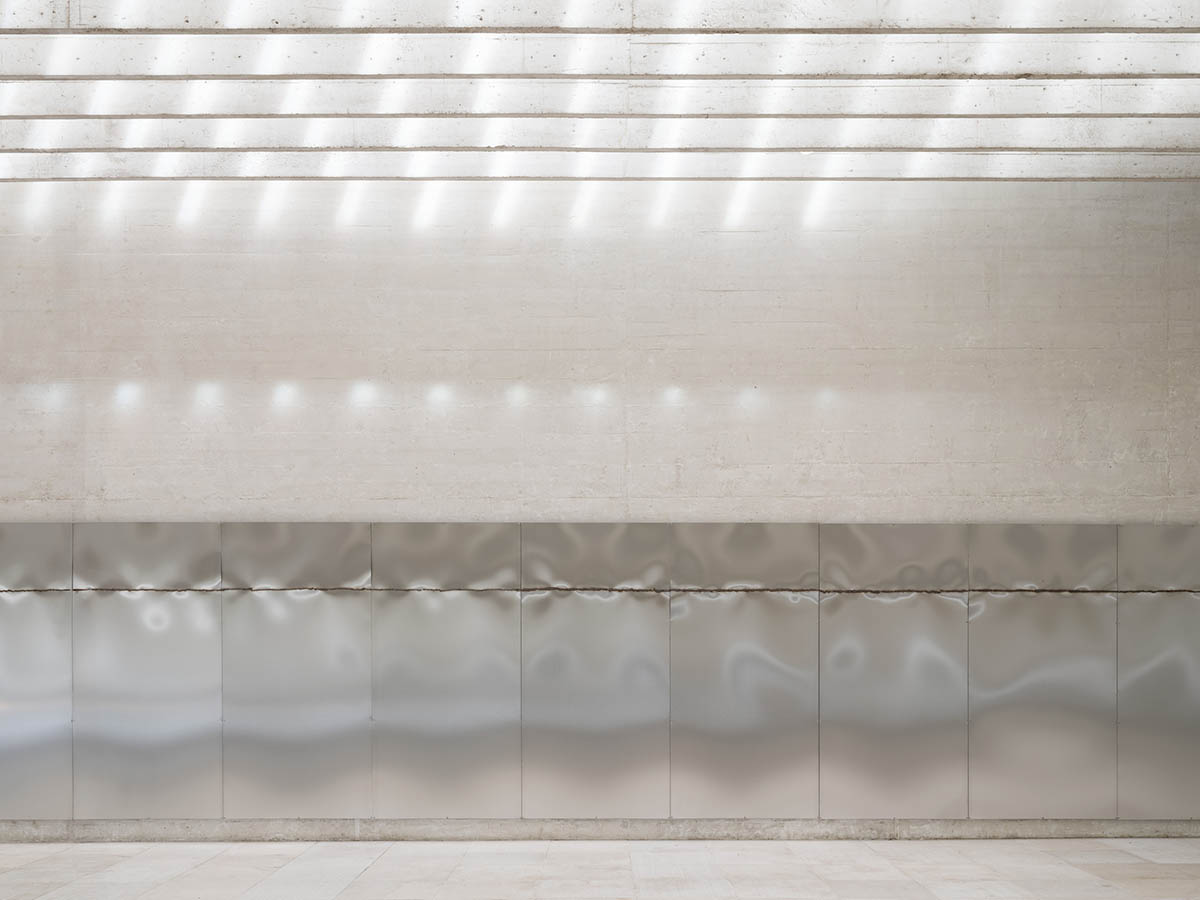
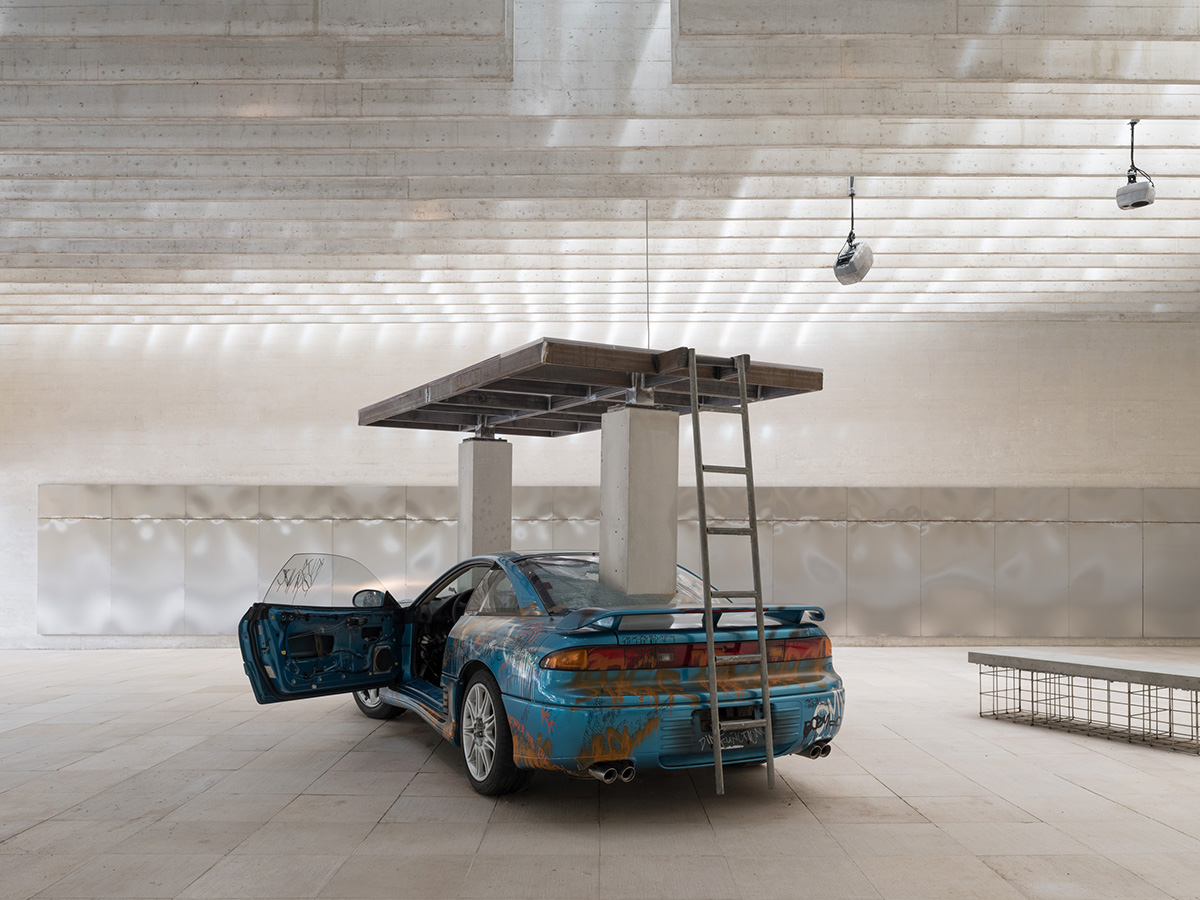

The Architecture & Design Museum Helsinki has been in charge of the commissioning process for the 19th International Architecture Exhibition, and the three commissioning organizations alternate in leadership.
The 19th International Architecture Exhibition will take place from 10 May to 23 November 2025 at the Giardini, the Arsenale and various venues in Venice, Italy.
Find out all exhibition news on WAC's Venice Architecture Biennale page.
Exhibition facts
Project name: Industry Muscle: Five Scores for Architecture
Commissioners: Carina Jaatinen, Architecture & Design Museum Helsinki, Finland Yngvill Aagaard Sjöösten, The National Museum of Norway, Karin Nilsson, ArkDes, Sweden
Curator: Kaisa Karvinen, Architecture & Design Museum Helsinki
Exhibitor: Teo Ala-Ruona
Exhibitor’s Collaborators:
Dialogue Architect: A.L. Hu
Spatial Designer and Artist: Teo Paaer
Sound Artist: Tuukka Haapakorpi
Visual Artist: Venla Helenius
Graphic Designer: Kiia Beilinson
Fashion Designer: Ervin Latimer
Dramaturge: Even Minn
Performers: Romeo Roxman Gatt, Kid Kokko, Caroline Suinner
Project manager: Luba Kuzovnikova
Curatorial Advisor: Suvi Saloniemi
Advisory Board: Nick Axel, Eva Franch i Gilabert, Panu Savolainen
AV Installation: Pro Av Art Oy
Film Production: Director / Cinematographer / Camera / Editor: Venla Helenius Tattoo Artist: Spider Nykänen
Local Production: M+B Studio
All images © Ugo Carmeni.
> via Design Museum Finland
